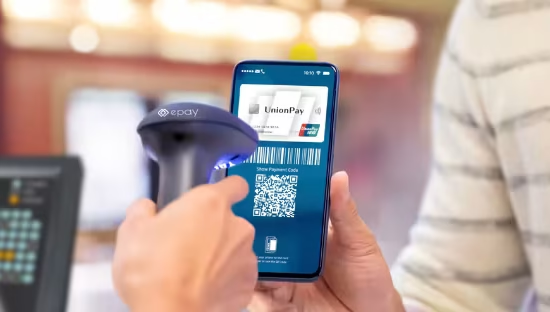
Telcos Didn’t Invent Roaming Fees. They Invented Traveler Punishment.
If you’ve ever landed in a new country, switched off airplane mode, and gotten that “Welcome abroad!” text from your mobile carrier, you know the feeling. For a brief second, you feel cared for—like your carrier is saying, Don’t worry, we’ve got you covered here too.” But then you keep reading. “Calls: €2.99/min. Data: €7 per MB.” Suddenly, it’s not a warm hug. It’s a shakedown.
Let’s be honest: roaming was never designed as a “service.” It was engineered as punishment. A penalty for daring to step outside your home network. A way to remind you, with every megabyte, that you belong somewhere else.
And yet, telcos have tried to spin roaming as some sort of premium luxury—an exclusive privilege for travelers. The truth? It’s one of the most blatant, cynical money-grabs in the history of telecom.
Roaming: The Myth vs. The Reality
The myth says roaming is complicated. Networks need to “talk” to each other across borders, and that coordination costs money. Your telco is simply passing those costs along to you, the traveler.
The reality? Most of the “complexity” has been solved for decades. Carriers have established global roaming agreements, they settle wholesale rates with each other, and the actual cost of delivering that text you just sent from Rome to New York is close to nothing.
But carriers figured something out early: people will pay almost anything to stay connected abroad. That first terrifying phone call home? Priceless. The quick Google Maps search to find your hotel? Essential. Telcos leaned on this desperation and set roaming rates not by cost, but by pain.
Roaming as a Penalty Box
Here’s the part nobody likes to admit: roaming fees were never about enabling connection. They were about enforcing loyalty.
If you used your phone abroad too much, you might start to wonder why you couldn’t just switch to another carrier. Roaming fees were engineered to feel like a slap on the wrist. A reminder: This isn’t your territory. You’re on borrowed airwaves.
Think about it. Every aspect of roaming was designed to punish you:
- By the minute calls when back home you had unlimited talk.
- By the megabyte data when you were used to gigabytes.
- Texts that cost the price of coffee, even though messaging is essentially free to transmit. why roaming is expensive
Roaming wasn’t built as an extension of your home plan. It was built as a barrier. Step out of line, and you’ll pay.
The Psychology of Punishment
There’s something almost medieval about roaming. It’s not just expensive—it’s punitive. Like a toll you pay for your disobedience.
Carriers could have designed roaming as a seamless extension of your plan. They could have said, “We’ve partnered with networks globally to give you fair rates.” Instead, they chose to frame travel as a risk. As if the moment you left your home country, you were engaging in some reckless, dangerous behavior that must be corrected through fees.
This is why travelers often describe roaming charges not just as “high” but as unfair. It’s not just the cost—it’s the sense that the cost exists purely to teach you a lesson.
How Europe Broke the Spell
The EU famously abolished roaming charges within its borders in 2017. Suddenly, you could use your home plan in Paris, Berlin, or Rome just like you would in Madrid. The sky didn’t fall. Networks didn’t collapse. Carriers didn’t go bankrupt.
What it proved is that roaming was never about feasibility. It was about conditioning. When the EU pulled the plug, the telco narrative fell apart. People saw what was possible, and they started asking harder questions:
- Why does data in New York cost pennies, but the same data in Tokyo costs €10 per MB?
- Why does a WhatsApp call in London feel “normal,” but the same call in Dubai feels like a crime against your wallet?
The EU regulation pulled back the curtain, and what people saw wasn’t complexity—it was punishment.
The Global Patchwork of Pain
Outside Europe, roaming still thrives as punishment. In the US, some carriers now market “roam like home” plans, but dig into the fine print and you’ll find throttled speeds, daily passes, or outright blocks after a certain amount of data.
In many countries, roaming is still one of the biggest profit centers for carriers. They rely on your panic. They know that when you’re in a foreign airport trying to get directions, you won’t comparison-shop. You’ll cave.
It’s not a service. It’s hostage-taking.
Enter the Alternatives
The rise of eSIMs and global SIM providers is proof that people are fed up. Companies like Airalo, Nomad, Airhub, and others are building businesses on the simple idea that travel connectivity shouldn’t feel like punishment. Buy a data pack, activate it instantly, and avoid the medieval penalties.
Even big names like Apple are moving in. Why? Because they see the writing on the wall: roaming fees don’t make sense in a world where everything else is borderless. Your Netflix subscription works everywhere. Your Spotify playlist follows you. But your phone bill? It still acts like you’re crossing into enemy territory.
We compare, you connect. It’s that simple.
Why Telcos Won’t Let Go
You might ask: if roaming is so outdated, why do telcos still cling to it? The answer is simple: punishment pays.
Roaming has been a multi-billion-euro revenue stream for decades. And while alternatives are chipping away, carriers are reluctant to let go of a model that’s essentially free money.
Remember, they’re not charging you based on what it costs them. They’re charging you based on how much they think you’ll tolerate before you turn your phone off. It’s a game of brinkmanship. And for years, they’ve won.
Travelers Are Fighting Back
The good news is that travelers are wising up. More people are turning to local SIMs, eSIMs, or Wi-Fi-first solutions. They’re refusing to play the punishment game.
And once you’ve escaped the penalty box, you never go back. Once you’ve paid €20 for an entire trip’s worth of data instead of €200 in roaming bills, you see roaming for what it is: a relic. A punishment engineered in the 1990s, still haunting us in 2025.
The Future Without Punishment
Here’s the irony: telcos love to talk about “connecting people.” They run glossy ads showing families FaceTiming across continents. But their roaming fees tell a different story: We’ll connect you—if you pay the fine.
The future of connectivity doesn’t need fines. It needs fairness. Roaming as punishment is unsustainable in a world where travelers expect transparency and borderless access. And as eSIMs, satellite connectivity, and new players flood the market, the punishment model is crumbling.
Because here’s the truth: travelers don’t need roaming fees. But telcos still do. And that’s the tension.
Why Roaming Is Expensive – Final Thought
Roaming was never about service. It was about control. About punishment. About making sure you remembered your place in the telco ecosystem.
But travelers are tired of being punished for the simple act of crossing a border. Connectivity is a necessity, not a luxury. And the companies that recognize this—those who design products to empower, not penalize—are the ones that will own the future of travel tech.
So the next time you land in a new country and get that “Welcome abroad!” text, read between the lines. It’s not welcome. It’s a warning. And it’s long past time we stop accepting it.










